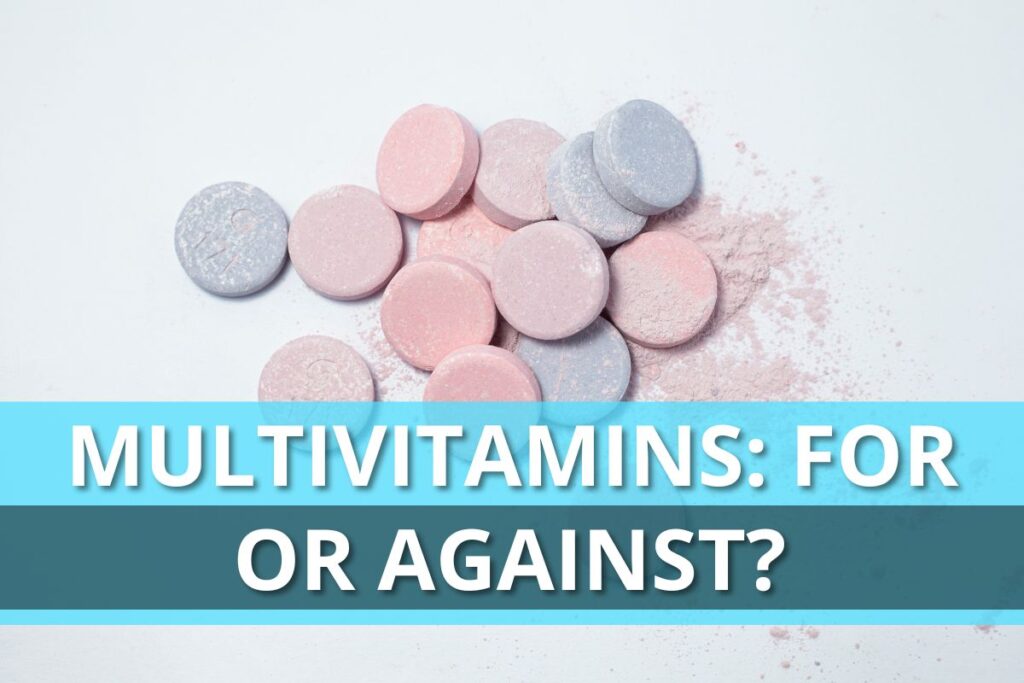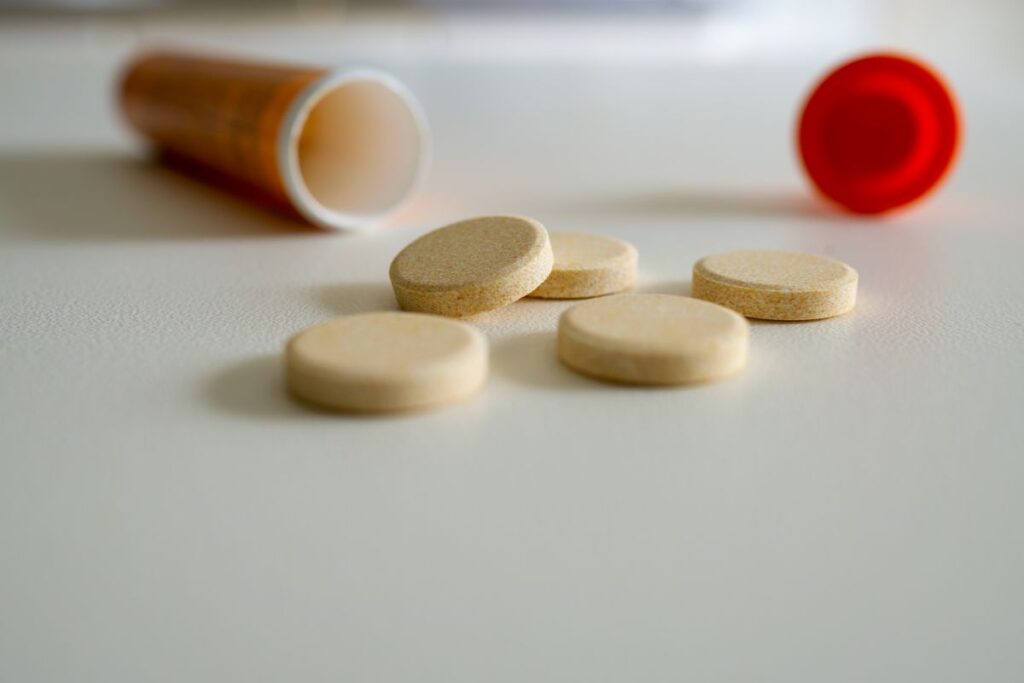Multivitamins: For Or Against?
Author:
Unlock your full potential by engaging with our experts and community! Have questions about your fitness journey or looking for expert advice on weightlifting techniques? Don’t hesitate — leave a comment below and Sergii Putsov will provide a personalized answer and insights to help you reach your goals.
Torokhtiy is reader-supported. Some links are affiliate links, and we may earn a commission at no extra cost to you. See our disclosure page for details.

Every person, whether he is engaged in sports or not, should daily receive the whole set of vitamins. They are essential substances – the organism needs them, but either it does not produce them at all, or synthesizes them in insufficient quantity. For example, our intestinal microflora produces some amount of vitamin K and B vitamins, and under the influence of the sun, our skin synthesizes vitamin D.
However, we must receive all vitamins through balanced nutrition. The question is, do we need multivitamins, or can we meet the needs of our body from usual products? And does the additional intake of multivitamins help to increase training efficiency and improve results?
Why does the athlete need vitamins?
Vitamins function as metabolism regulators and affect a number of physiological processes important in physical activity. For example, many B vitamins are involved in the metabolism of carbohydrates and fats to produce energy. This is an important factor in performing exercises. Several B vitamins are also needed to form hemoglobin in erythrocytes, which delivers oxygen to muscles during endurance exercises. In addition, vitamins C and E function as antioxidants, which are important for preventing oxidative damage to cellular structures during physical activity. Theoretically, vitamins-antioxidants can optimize preparation for competitions.
Do one need to take multivitamins?
Vitamin deficiency can negatively affect physical efficiency and, as a result, sports results. However, athletes who adhere to high-calorie diets automatically receive more vitamins. And it is logical, because the more we eat, the more nutrients we get – proportional to the amount eaten.
You may like it:
According to most studies, athletes have deficits of only individual vitamins. At the same time experts recommend first of all to optimize nutrition (what is done in our programs on muscle gain or weight loss), and only then to look towards supplements.
Perhaps the main question – can additional intake of vitamins in the form of supplements improve sports results if the athlete receives the daily norm of vitamins at the expense of a balanced diet? Scientists says: “Lack of B vitamins can worsen both aerobic and anaerobic indicators. But overall, studies have not shown that taking them as multivitamins improves people’s performance who eat well.”

Studies show that athletes do not need multivitamin and mineral supplements, but only on the condition that the athlete adheres to a well-planned, normal-caloric, and balanced diet. For example, in several studies, test subjects took multivitamins/minerals in the form of multivitamins over a long period of time. Physical efficiency tests did not show a significant effect of additional multivitamin intake on physical indicators.
Other study evaluated the effect of vitamins/minerals intake in a dosage that exceeded the daily recommended norm by 100-5000 times. Athletes were tested for various indicators, including strength and power. As a result, the intake of multivitamins did not significantly affect the results compared to athletes who received a daily norm of vitamins and minerals from usual products.
If you train very hard, in this case you need to pay special attention to individual B vitamins: thiamine (B1), riboflavin (B2), and vitamin B6. They are particularly involved in energy production. But they can be obtained without problems at the expense of a high-calorie diet, which is adhered to by many athletes. The best sources of these vitamins are dried herbs, whole grain, legumes, lean pork, poultry meat, salmon family fish, and liver.

In general, if the athlete receives sufficient energy from a well-planned diet, multivitamin intake is not required.
Additional intake of multivitamins can be dangerous to health. Vitamin supplements, which are limited to a dosage of up to 100% of the recommended daily rate for each vitamin, are generally considered safe. However, an excess of several vitamins can lead to serious health problems. For example, even taking water-soluble niacin (vitamin B3) can cause liver damage, and excess vitamin B6 can cause damage to peripheral nerves. Vitamin A also has a toxic effect if consumed in excess. Vitamin E excess can increase the risk of prostate cancer, and vitamin D excess can increase the calcification of vessels and tissues, followed by damage to the heart, blood vessels, and kidneys.
Plus, the supplement market is not strictly regulated, so they may contain substances that are not declared on the package. It is necessary to take this into account and if necessary to buy only multivitamins from manufacturers with a good reputation and USP certification.
In general, experts agree that with a well-planned diet with an adequate number of calories, no additional intake of multivitamins is required. They can only be recommended in individual cases, such as vegetarians (especially vegans) and athletes who adhere to a low-calorie diet in order to reduce the percentage of body fat.
If you don’t adhere to a low-calorie diet, but your diet is far from ideal, in this case you can consider taking multivitamins. But the dosage should not exceed 100-150% of the recommended daily allowance.
Nevertheless, experts recommend obtaining all vitamins and minerals from a regular, well-planned diet. For example, the Dietary Guide for Americans for 2015-2020 states, “Nutrient needs should be met mainly from conventional high nutrient products.” So the best solution is to optimize the diet. And we can help you with it – just go to the section with nutrition programs and choose the appropriate program for your purposes.
You might be interested in:
Why Trust Us?
With over 20 years in Olympic weightlifting, strength training, nutrition coaching, and general fitness our team does its best to provide the audience with ultimate support and meet the needs and requirements of advanced athletes and professional lifters, as well as people who strive to open new opportunities and develop their physical capabilities with us.
By trusting the recommendations of our certified experts in coaching, nutrition, and sports training programming, as well as scientific consultants, and physiotherapists, we provide you with thorough, well-considered, and scientifically proven content. All the information given in the articles concerning workout programming, separate exercises, and athletic performance, in general, is based on verified data.
The product testing process is described in more detail here.
Author: Sergii Putsov
Head of Sport Science, PhD
Best Results: Snatch – 165 kg,
C&J – 200 kg
Sergii Putsov, Ph.D., is a former professional weightlifter and National team member, achieving multiple medals in the 94 kg weight category at national competitions. With a Master’s degree in “Olympic & Professional Sport Training” and a Sport Science Ph.D. from the International Olympic Academy, Greece, Sergii now leads as the Head of Sport Science. He specializes in designing training programs, writing insightful blog articles, providing live commentary at international weightlifting events, and conducting educational seminars worldwide alongside Olympic weightlifting expert Oleksiy Torokhtiy.




Still have questions after reading our article? Unlock your full potential by engaging with our experts and community! Don’t hesitate — leave a comment below and Sergii Putsov will provide a personalized answer and insights to help you reach your goals.